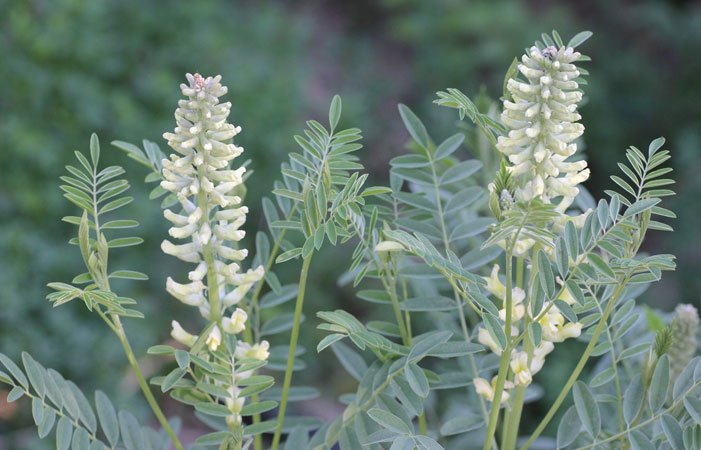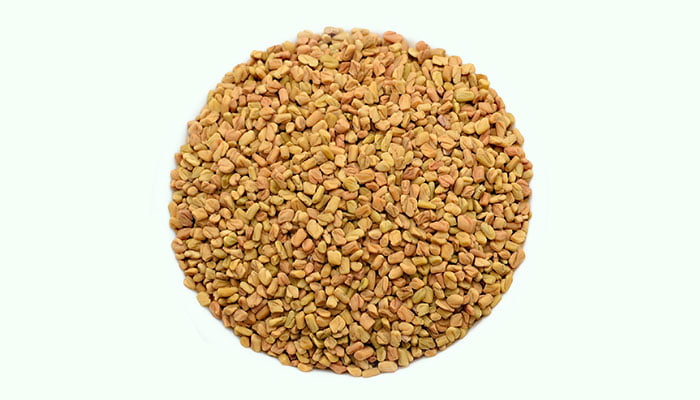What Is Ku Dou Zi
Ku Dou Zi is commonly known as Sophora Alopecuroides, which is a perennial herb belonging to the family Leguminosae. It is a commonly used ethnic medicine in Northwest China, which first appeared in <Handbook of Chinese Herbal of Xinjiang> in 1,970 AD.
This plant is drought-tolerant and alkali-tolerant, and they mostly grow in arid deserts and on the edge of grasslands. They are distributed in Northwest China and North China, Russia, Afghanistan, Iran, Turkey, Pakistan, and northern India. All parts of this plant can be made into medicine.
In the summer of each year, people gather the above-ground parts of Sophora alopecuroides, remove their impurities, dry them, and use them directly, and make them into Chinese herbal medicines.

If only the seeds of Sophora alopecuroides are used to make Chinese herbs, people should collect their seeds in the spring, dry them, and stir-fry them.
Ku Dou Zi contains matrine, oxymatrine, 9α-hydroxymatrine, sophoridine, oxysophoridine, sophocarpine, oxysophorcarpine, sophoramine, lehmannine, aloperine, anagyrine, cytisine, N-methylcytisine, nicotine, alopecurone A-G, sophoraflavanone G, butein, β-daucosterol, unsaturated fatty acids, volatile oils, polysaccharides, amino acids and a small number of inorganic elements.
According to <Handbook of Chinese Herbal of Xinjiang>, the medicinal nature of Sophora Alopecuroides is relatively cold, with toxicity and bitter taste. It has a certain therapeutic effect on the pathological changes of the stomach and large intestine meridians.
In traditional Chinese medicine (TCM), it is often used to clear away heat and dampness, kill worms, and treat enteritis, bacterial dysentery, stomach pain, toothache, skin itching, eczema, sore, furuncle, recalcitrance, psoriasis, cervical erosions, abnormal white bands, and chronic hepatitis B.
Benefits
- Killing Amoeba, Giardia and Trichomonas vaginalis.
- Anti-inflammation, inhibiting croton oil-induced ear swelling in mice, and carrageenan-induced foot swelling in mice.
- Inhibiting hepatitis B virus and Coxsackie virus.
- Increasing the pain threshold and inhibiting the pain response of mice.
- Inhibiting the central nervous system, having sedative and hypnotic effects.
- Antagonizing experimental arrhythmias induced by adrenaline and coronary artery ligation.
- Inhibiting IKR of ventricular myocytes, protecting myocardial ischemia and myocardial infarction.
- Reducing plasma lipoproteins, increasing high-density lipoprotein cholesterol levels, and reducing blood viscosity.
- Drying dampness and treating diarrhea and tenesmus caused by damp-heat.
- Clearing stomach heat, treating epigastric pain and acid regurgitation caused by stomach heat.
- Relieving the increase of vaginal discharge and the burning and itching of the external vagina caused by the downward flow of damp-heat, treating abnormal leucorrhea and cervical erosion.
- Removing heat toxins, treating sores and furuncles caused by heat toxins.
- Topical application of its dry distillation oil can treat eczema, stubborn ringworm, and psoriasis.
- Sophocarpine can significantly reduce the degree of liver fibrosis in rats.
- Clinically, sophocarpine is also used to treat choriocarcinoma and malignant hydatidiform mole.
- Inhibiting the proliferation of human liver cancer cells HepG2 cells, human liver cancer cell lines SMMC-7721 cells, and HL-60 human myeloid leukemia cell lines.
- Studies have found that both matrine and sophocarpine can affect the body temperature regulation center and lower the normal body temperature.
- Matrine can enhance the contractility of the isolated guinea pig’s right atrium and has a positive inotropic effect on the isolated guinea pig’s right ventricular papillary muscle.
- Studies have found that it has a certain inhibitory effect on cellular immunity and humoral immunity, and it can be used as an immunosuppressive drug.
Combinations
- It can be used in combination with Sheng Jiang (Rhizoma Zingiberis Recens), Pu Gong Ying (Dandelion), etc. to relieve stomach pain and spit acid water.
- It can be used in combination with Gang Song (Folium Baekeae Frutescens), Huang Bai (Cortex Phellodendri), Ku Di Ding (Corydalis Bungeana), She Chuang Zi (Fructus Cnidii), Bing Pian (Borneol), etc. to treat trichomonas, fungal and bacterial vaginitis.
Side Effects
- Ku Dou Zi is poisonous. Its seeds are the most toxic.
- Animal experiments show that its decoction can cause congestion, hemorrhage, edema of various organs and tissues, and different degrees of necrosis of tissue cells.
- Taking it by mistake or overdose may cause dizziness, nausea, vomiting, irritability, palpitation, pale complexion, and other adverse reactions.
Precautions and Warnings
- The dosage of Ku Dou Zi should be controlled at 1.5-3g.
- It can be made into decoctions, lotions, or ground for external use.
- Stir-frying it to black can reduce its toxicity.
- People who are allergic to Ku Dou Zi should not take it.
- Patients with rheumatic heart disease or kidney disease should not take it.
- Pregnant and breastfeeding women should not take it.
- Children, the elderly, and the infirm should not take it.
